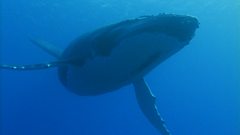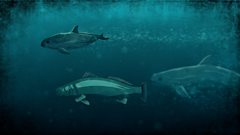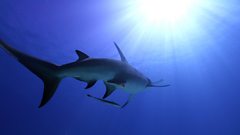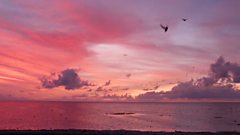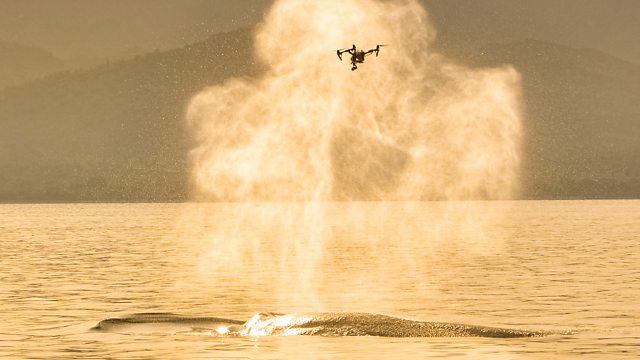
Episode 4
In the final programme of this week-long ocean health check, we find out what the future holds for the next generation of marine life and how we can help.
In the final programme of this week-long ocean health check, we find out what the future holds for the next generation of marine life and how we can help.
The team looks at how scientists across the world are embracing technology to find solutions to the pressures faced by wildlife at sea. In Mexico, Chris is at the endpoint of his journey, the southernmost tip of the Baja peninsula, uncovering the secret success of humpback whales. He joins a team deploying an innovative listening device that reveals some extraordinary whale behaviour.
As night turns to day, we join Liz live in Australia as she tunes in to an underwater dawn chorus to be captivated by fluorescent corals that light up the reef. She also witnesses tiny turtle hatchlings running the gauntlet of predators ahead of their epic migration.
Over in the Bahamas, Steve prepares for his final and most challenging dive of the week. To understand more about hammerhead sharks and the journey they will make when they leave the Bahamas, he has his most dramatic underwater encounter yet as he joins scientists attempting to count one of the biggest gatherings on the planet.
Out on the open ocean in the Pacific, our expedition vessel reports back with exciting new discoveries that the latest technology is bringing us from the deep.
Last on
More episodes
Previous
Next
You are at the last episode
Clips
-
![]()
Humpbacks head to the Antarctic to feast
Duration: 02:11
-
![]()
The vaquita is the world's most endangered marine mammal
Duration: 01:47
-
![]()
Farewell from Blue Planet Live
Duration: 01:26
-
![]()
A sunrise on Heron Island
Duration: 01:15
Music Played
-
![]()
Steve Mason
To A Door
-
![]()
Ellie Goulding
This Blood
Credits
| Role | Contributor |
|---|---|
| Presenter | Liz Bonnin |
| Presenter | Chris Packham |
| Presenter | Steve Backshall |
| Executive Producer | Roger Webb |
Broadcast
- Sun 31 Mar 2019 20:00
Order your FREE Our Blue Planet booklet to discover more about human impact on the ocean
Visit OpenLearn, The OU’s home of free learning, to learn more about our blue planet.
